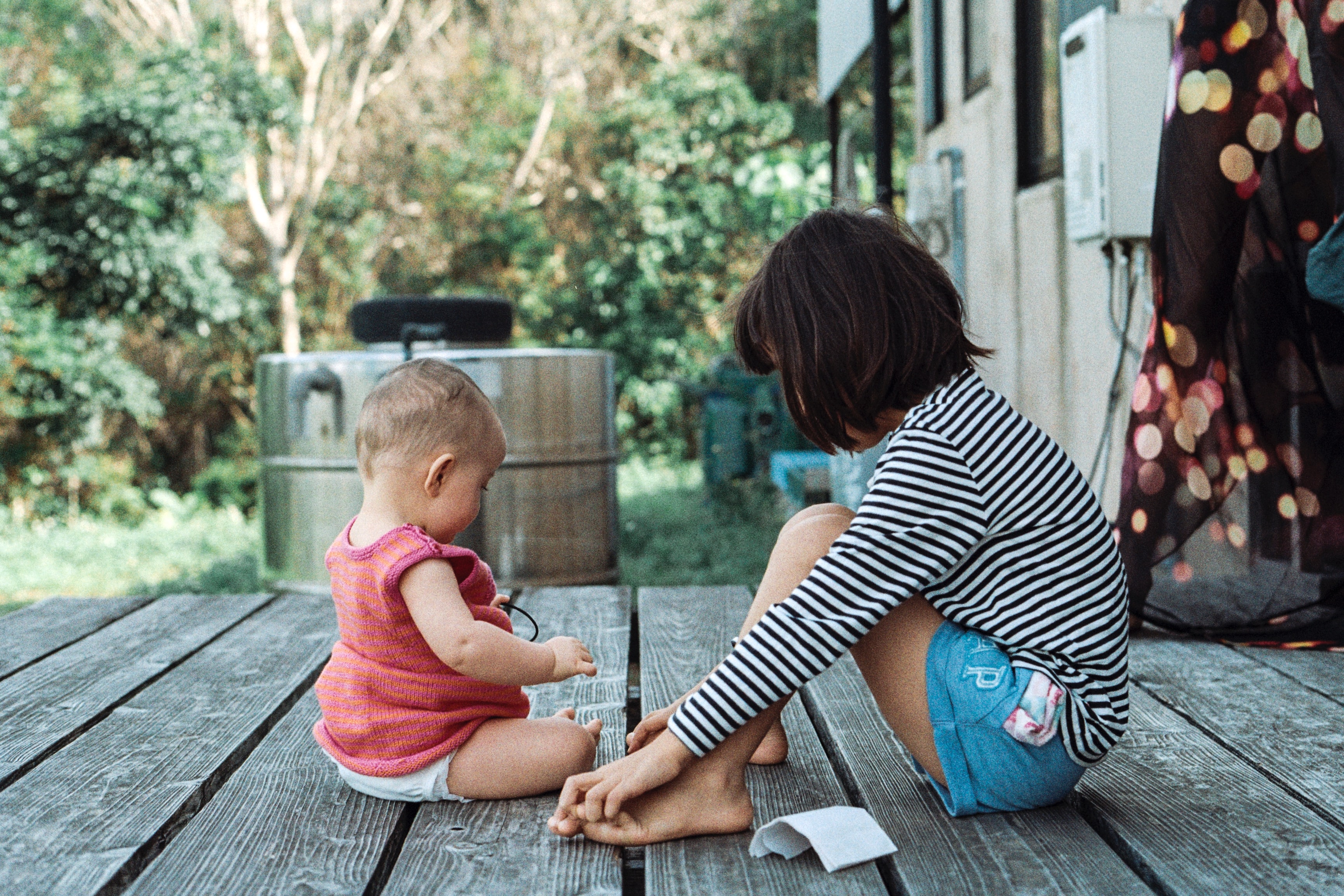Will my toddler’s social development be stunted during shelter in place? Why is my child suddenly acting out since we began social distancing? What will be the long-term aftermath for this generation?
These are some of the questions popping up across my parenting groups. Many of us are worried about the impact COVID19 related social distancing will have on our children, and rightfully so – social interaction is critical to child development. The impact is compounded by the sudden change in routines and a child’s inability to fully grasp our current situation.
“Trauma (in this case the virus) takes away the 5 S’s: stability, structure, safety, subtlety (as in personalization) and someone(s) (people with whom children can relate and engage other than parents or guardians),” shared Karen Gross, educator and author of Trauma Doesn’t Stop at the School Door.
“There are differences in terms of how children of different ages will respond to the isolation but this we know: they will all react.”
Karen Gross
According to Forrest Talley, a clinical psychologist who has worked with the Department of Pediatrics at University of California, Davis as well as the U.S. Army, children six years and under will be least affected, as they “find their primary relationship attachments with their parents and siblings.” Ages seven to 11 will suffer the most as they have “started to hunger for peer attachments and their identity has begun to be heavily defined by relationships with those outside of their family.” For ages 12 and up, Talley says their pre-COVID19 use of social media to connect with friends and build relationships will lessen the hardship of social distancing although they “will sorely miss their peers.”
Ellen O’Donnell, pediatric psychologist at MassGeneral for Children in Boston, instructor at Harvard Medical School and author of Bless This Mess: A Modern Guide to Faith and Parenting in a Chaotic World, says that “being separated from peers may have the biggest impact on adolescents because one of the major developmental tasks of the teenage years is individuation from parents.” She says the issue for this age is less about being away from peers, and more about not having time apart from parents as this “gives teens fewer opportunities to have to make their own decisions, to experiment in safe and appropriate ways with new experiences with peers, and to try on different social roles separate from their families.”
So what can parents do to help their children of all ages through this unprecedented time? I asked experts in child development and psychology to share their best strategies.
Keep Celebrating
Brandi Tanner, a licensed psychologist and special education advocate, urges parents to keep celebrations going. “To the greatest extent possible, families should continue to celebrate special days such as birthdays and holidays,” she shared. “The celebration of special events helps to mark time in a traditional fashion when it may feel like things are moving slower than a normal place. Maintaining these types of schedules and routines helps to foster a sense of normalcy.”
Give Kids Independence
Children of all ages are experiencing a lack of autonomy and control during this time. Find ways they can take ownership or make choices within the boundaries of the lockdown.
O’Donnell says it’s important during this time to “involve [children] in family decision making. Give them responsibilities requiring some independence like picking up takeout food. Allow them to choose how and when to get their schoolwork done if they have remote learning.”
Similarly, Jason Kahn, a researcher at Boston Children’s Hospital specializing in child development, instructor at Harvard Medical School and co-founder and Chief Scientific Officer at Mightier, says that during COVID19 lockdowns “we need to find elements where kids do have control and emphasize them in their daily routine.” His own family, for example, “has a list of things that need to happen on a ‘school day’ and then [he gives his] kids agency in what order they get done.”
Even a child as young as one year old can make simple decisions for themselves, such as which fruit they want for a snack or which shirt they want to wear, providing them with a sense of independence.
Make Plans for the Future
You know how planning an upcoming vacation can help you get through a tough week, and is often even half the fun of the vacation itself? Apply that principle to social distancing.
Kelly Donohoe, a licensed counseling psychologist whose work focuses on relationships between people, recommends parents “plan for the future with your kids to have things to look forward to.” Because no one knows how long COVID19 lockdowns will last or how exactly our world will look like after, Donohoe suggests two games – “Imagine It” and “Magic Wand.”
In Imagine It, you plan parties, vacations, and dream lives for the future. “No dates are set but it is fun and hopeful to make a list of all the things you want to do,” says Donohoe.
In Magic Wand, each person says what life would look like if they could wave a magic wand. Donohoe explains that “this gives everyone a chance to talk about what they wish for and to see what children really want in a day, month, year – whatever timeline you decide on.”
Keep a Family Journal
Journaling during lockdown can help your children (and you) not only process this experience, but also document it for the future.
Donohoe recommends families collaborate on a journal “where everyone adds just a sentence or two a day, to keep track of how you’re all doing, and what this experience feels like.”
Help Them Express Their Feelings
Children rarely tell you what is bothering them because they often lack the words to identify and express their feelings. Kahn explains that “across the board, kids have bigger emotions than adults and less tools to regulate them.” Stories, role play, and games can help them find ways to share what they’re going through.
Kahn’s company, Mightier, created a video game that helps kids strengthen their social emotional skills. Developed at both Boston Children’s Hospital and Harvard Medical School, the game uses a heart rate monitor worn by the child to help visualize their emotions. The heart rate controls the difficulty of the game, and prompts kids to use calming skills in order to win the game.
Gross published a story on YouTube designed to help children deal with their emotions during COVID19 social distancing. Gross believes that “if [children] can relate to the character (a dog named Wrinkles), then they can start to express their own feelings without risk.” And Wrinkles even has an email address where kids (with parental supervision) can write to – [email protected].
Enlist Relatives from Afar
Homeschooling your kids while working full-time? Jennifer Thomas, an author, clinical psychologist and community psychologist, encourages “parents who are trying to work while homeschooling [to] use relatives to teach weekly lessons via Zoom. Many hands make light work – and will strengthen family ties across the miles.”
Kids not in school yet? Grandparents or other relatives can still step in to do a weekly storytime with your child or expose them to a second language via video chat.
Social Distanced Play
Even from a distance, children can play together and strengthen their relationships with peers and neighbors.
Aniesa Blore, a pediatric occupational therapist, suggests ideas like setting up a game of musical statues with friends on your street. Each person stays in their front yard while one parent plays music for all to hear. She also recommends cooperative projects such as sidewalk or street chalking where “each house/child can be responsible for a square, which they can do when others are watching from their homes.”
Blore says these types of social distanced play become “a collaboration and [children] continue to have a sense of community.”
Remember We Are All in the Same Boat
At the end of the day, both you and your child can take comfort in knowing that you are not alone in this. “There are no birthday parties to miss,” says Donohoe. “Children and teens are sad, feel regret over special occasions missed, but are not what we call developmentally asynchronous… they are all in this together.”


